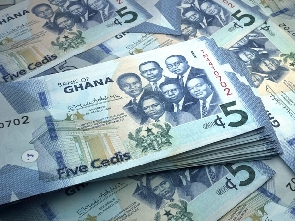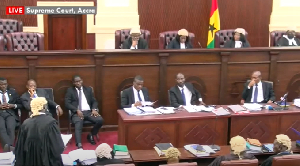Opinions of Wednesday, 19 July 2023
Columnist: Ebenezer Oboh
The dwindling cedi factor
In the bustling streets of Ghana, the Ghanaian Cedi is at the heart of everyday transactions. Yet, a dark cloud looms over its handling and management. The poor handling of the Ghanaian currency has far–reaching consequences that affect individuals, businesses, and the overall economic landscape. The Cedi has a rich history that dates back to the country’s independence in 1957.
Over the years, it has experienced periods of instability, insulting in significant devaluations against major international currencies. The Ghanaian government has implemented various strategies to stabilize the Cedi, including currency redenomination, fiscal policies, and interventions by the central bank.
However, these efforts have not been entirely successful, and the cedi continues to face challenges. This feature article aims to shed light on the challenges and the potential solutions to rectify this pressing issue.
Factor
One of the primary factors behind the poor handling of the Cedi is economic mismanagement. Inadequate fiscal policies, corruption and misallocation of resources have undermined the currency’s stability.
These issues have eroded public confidence in the government’s ability to manage the economy effectively. Ghana’s economy is highly dependent on external factors such as global commodity prices, foreign exchange inflows, and international trade.
Fluctuations in these factors can have a significant impact on the value of the cedi. Poor management of external shocks and in adequate diversification of the economy have made the cedi vulnerable to external pressures.
The Bank of Ghana (BoG), the country’s central bank, plays a crucial role in maintaining currency stability. However, the effectiveness of monetary policy has been questioned due to inconsistent implementation and limited impact on inflation.
This has led to a loss of confidence in the central bank’s ability to manage the Cedi effectively. The poor handling of the Ghanaian currency has far-reaching consequences for the economy and the lives of ordinary Ghanaians.
Consequences
Some of the consequences include the devaluation of the cedi contributes to inflation; making it more difficult for people to afford basic necessities. Rising prices of goods and services disproportionately affect the poor, leading increased poverty levels.
Currency instability undermines foreign investors’ confidence in Ghana’s economy. This hampers economic growth and job creation, limiting our potential for development.
A weak currency makes imported goods more expensive, affecting businesses and consumers alike. This leads to higher production costs, reduced competitiveness, and a negative impact on the trade balance.
Addressing the poor handling of the Ghanaian currency requires a comprehensive approach involving both short-term and long-term measures. Some potential solutions are explained in the next few paragraphs.
The government must prioritize fiscal discipline by ensuring efficient allocation of resources, reducing corruption, and implementing sound economic policies to restore confidence in the Cedi.
BoG should also focus on improving the effectiveness of monetary policy tools to control inflation and stabilize the currency. This may involve better communication, coordination with fiscal authorities, and enhanced transparency.
Reducing Ghana’s reliance on commodity exports and diversifying the economy can help mitigate the impact of external shocks on the cedi. Encouraging investment in sectors such as manufacturing, agriculture, and technology can foster sustainable economic growth.
The poor handling of the Ghanaian currency, has had significant consequences for the economy and the lives of ordinary Ghanaians. We need a multi-faceted approach, including fiscal discipline, effective monetary policy, and economic diversification.
By implementing these solutions, Ghana can work towards stabilizing the cedi to foster economic growth, and improve the livelihoods of its citizens. It is crucial for the government, central bank, and stakeholders to collaborate and take decisive action to ensure a brighter future for the Ghanaian currency.













